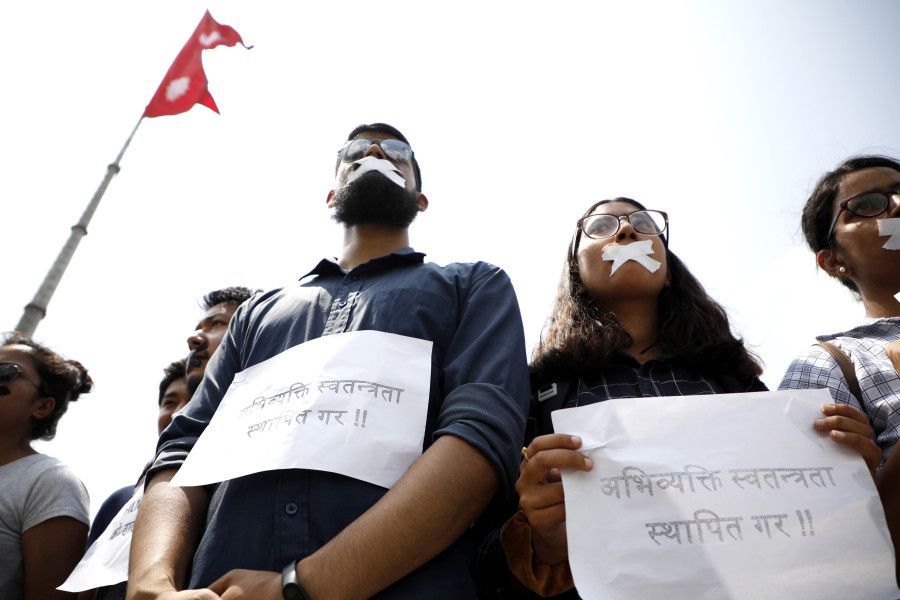Editorial
The case against Pranesh Gautam and meme Nepal is ridiculous
The right to free speech must be defended at all costs
On June 7, 2019, the police arrested comedian Pranesh Gautam for a satirical video review of the film Bir Bikram 2. Acting on a complaint from the filmmaker Milan Chamling ‘Chams’ Rai, Gautam was taken into custody under the controversial Electronic Transaction Act. Chams had alleged that the review defamed him, but instead of charging Gautam for defamation, the Electronic Transaction Act was applied, since the review was uploaded to YouTube. Gautam, a young comedian and architect, has been languishing in jail for the past five days.
While the Post had been consistently reported on the case for over a week, things finally came to a boil on Tuesday. Social media picked up the story and the ensuing outrage led to a number of news reports in the media. What disturbs most people is the fact that Gautam was arrested for exercising his constitutional right to free expression. His review might have been crass, but it was an honest critique. He did not incite violence, use hate speech or use personal attacks—all of which are not covered by free speech. All he did was review the film, albeit in a doltish manner, and that is squarely an exercise of free speech.
Chams, the director, has been alleging that the review has harmed the Nepali film industry as a whole—and his business prospects. The first allegation is ludicrous, as Chams does not represent all of Nepali film. The second allegation is, unfortunately, a side-effect of being a creative professional in a democracy, where criticism has consequences.
This entire saga seems sinister. Nepal’s police are not known for their prompt action when it comes to cases of libel and defamation, especially when online mediums are involved. Past practice has been to summon both parties, ask that the offending material be removed, issue an apology and have them sign a document of agreement. Generally, cases like these don’t go further than this, unless they involve more serious charges such as fraud, identity theft, blackmail or ‘revenge porn’. The police took Gautam into custody on Friday, knowing Sunday was a holiday so they would have an extra day to hold him. On Monday, the court granted an extension of five days for investigation. But what really are they investigating? Gautam uploaded the video, his face is all over it. MemeNepal, the company that Gautam works for, has offered to remove the video, apologise unconditionally, and even remove the MemeNepal brand completely, a demand that Chams has made—as long as Gautam is released from custody. Chams refused, seemingly out for his pound of flesh.
Chams has also alleged that MemeNepal attempted to extort him, asking for money before publishing the negative review. But MemeNepal promotes films and songs all the time—for a fee. Chams’ team had inquired about promotion rates and MemeNepal had replied. Things never went forward. MemeNepal and Gautam say that the review is unrelated to any promotion that Chams sought.
There are primarily two issues here. One, the misuse of the Electronic Transaction Act when separate laws for libel and defamation exist. This Act has been used numerous times in the past to arrest journalists, comedians and satirists on trumped-up charges. The vague provisions of the Act, especially Article 47, have allowed it to be applied to situations that it was never meant to address. Second, Gautam was well within his rights to review creative work. Impertinent language and crass humour are no grounds to arrest someone. The manner in which Gautam has been treated, using incarceration as a form of humiliation and torture, is despicable. In the short-term, Gautam must be immediately released, and in the longer term, the Electronic Transaction Act itself must be rethought and amended.




 12.47°C Kathmandu
12.47°C Kathmandu














